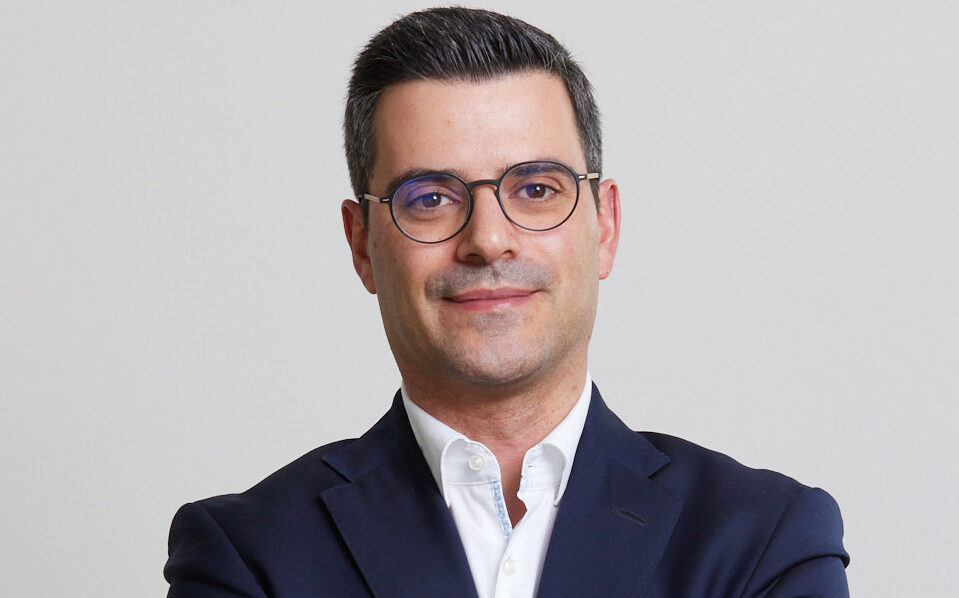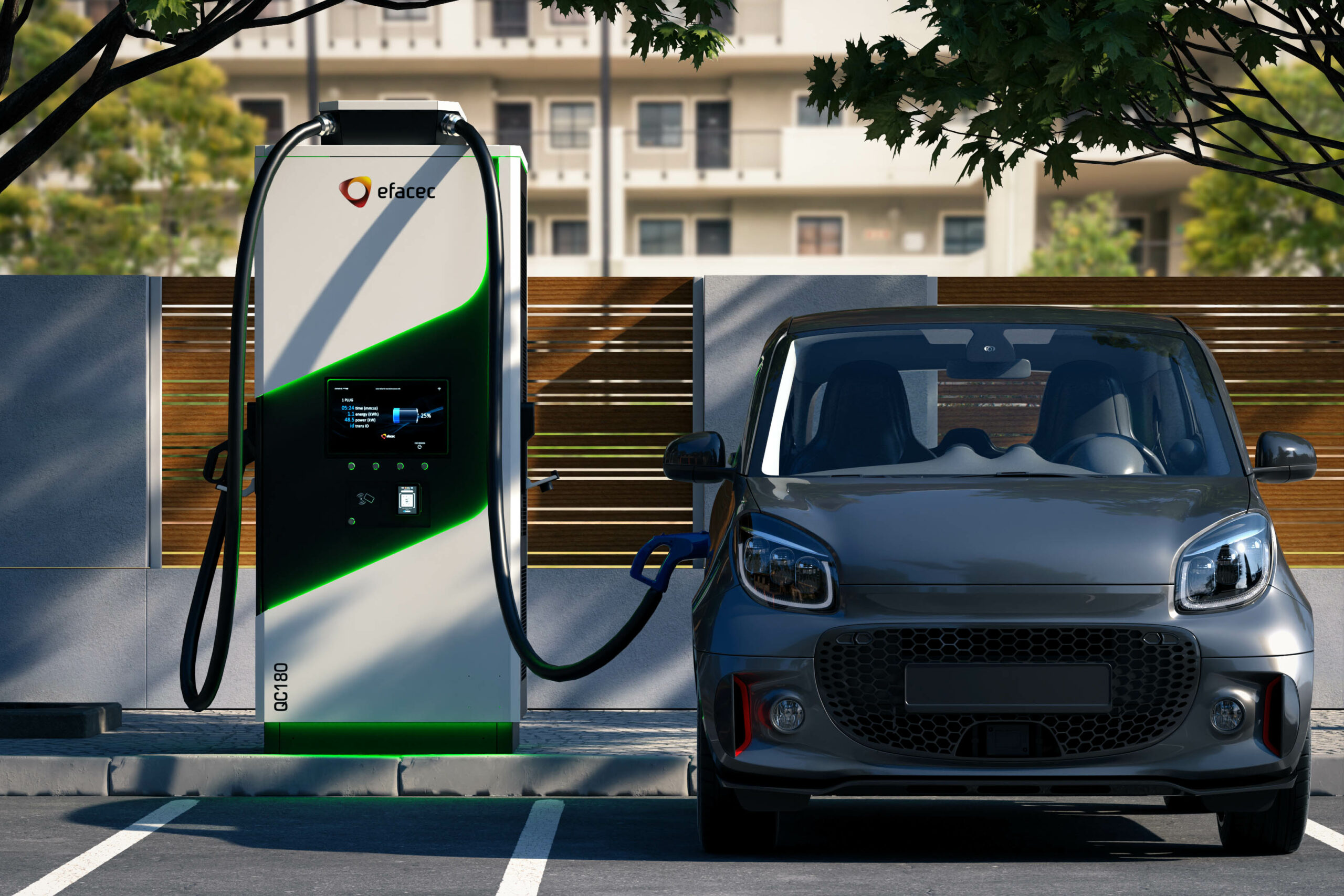After the storm comes calm. From Maya to the world, the phrase “Made in Portugal” is back in force for Efacec. The company expects a significant increase in business volume in 2024, helped by the electric mobility sector, which today launches another charger for the European and Middle Eastern markets. EBITDA should return to positive territory this year.
Trust is the key word at the moment at Efacec, which is currently working to regain the confidence of customers and suppliers following nationalisation, followed by uncertain times culminating in the sale to German fund Mutares.
From the Maia factory to the world, the Efacec “Made in Portugal” label is back in force. The company, based in Matosinhos, Porto region, expects to double its revenues this year.
The Portuguese company operating in the energy sector estimates that it will end the year with sales of 300 million euros, compared to 2023 when it reached 150 million euros.
One of its weapons to increase business volume is the electric mobility sector, and today the company will launch its new charger for electric cars, the QC180.
The new charger was developed by 140 workers from the company, which in recent years has invested 18% of its revenues in research and development of new products.
“We will mainly attack the demanding European markets: Spain, France, the Netherlands, Germany, Norway, Sweden and Denmark,” he said, adding that the company is also investing in several Eastern European countries (Romania, Hungary, Poland) and also intends to invest in the Middle East, “the United Arab Emirates, Qatar and Kuwait.” . “These are markets in which we already have an established base, where we already have a good presence, and a relationship with some customers that we want to strengthen, grow and even improve,” Jornal Economico revealed. Chief Technology Officer From Efacec, Nuno Silva.
The weight of electric mobility in revenue was below double digits in 2023, but the company expects this weight to rise to 15%-20%, as business volume grows.
EBITDA is expected to be “marginally positive”, as it has been in the “red” zone since 2020. This year should be far from the negative values recorded in previous years: -39 million in 2021 and -91 million in 2022 (2023). Accounts not yet disclosed.)
“We have re-established our value chain, customer relationships are organised, the ecosystem of partners and suppliers is organised, our production units have all the necessary conditions to fulfill contracts; we have a very strong order book which is very interesting in terms of composition. Regarding risk management, The orders are considered low-risk and have high added value, according to Nuno Silva.
“It will be a year of getting back to normal. Back to somewhat positive, marginally positive results,” he said regarding EBITDA. Growth will occur in various business sectors: transformers, substation equipment and distribution networks, transportation, automation, and more electric mobility: “This will shape what we have in the pipeline this year.”
“We are working to win new business. We obviously have some reference orders in countries where we have a proven track record to show the quality and competitiveness of our products, such as Germany, France, Spain and the UK. This year we clearly have a great commitment from customers who have supported us, in Portugal Also, which is very important for us, in the United States we also have a great history, it is a country with endless opportunities, there is a lot of space for Efacec, and Northern Europe is also very important for us.
Regarding the new charger, the director points out that “this is one of the solutions that we needed, and in which we invested over the past year as we spent a few months of comprehensive testing here to ensure the quality and performance of the new charger.” The product is now being introduced to the market with certain differentiation vectors: first of all, technological and functional differentiation. First of all, the 180 kW of power, which allows simultaneous charging, provides up to 350 amps to each socket on its cable, allowing remote connectivity to manage each of the chargers and solve larger as well as maintenance needs. It has direct payment terminals via credit card, thus complying with new and modern standards. It also has an interface that we find to be quite smooth and intuitive. Let's hope that not only our customers running the infrastructure, but also the end users, will see an easy solution here. The last point is also differentiation in terms of design, he explained to JE.
In addition to these markets, the United States is also a “primary market”, but Europe will be the primary market for this charger because Efacec “has other solutions” for the North American market, giving the example of the contract signed this year for the supply and installation of 132 QC45 chargers in Utah.
Although it is already present in all the previously mentioned markets, the company wants to “expand” its “footprint and the number of customers”, specifically in “Poland, Romania and Hungary”, where it has “potential” for growth, along with “Spain, France, Germany and the Nordic countries”.
Although internal combustion engines still dominate the Middle East, many countries have already begun their journey towards electric mobility. “This market is developing and it is impossible for us to circumvent it. This is happening everywhere, with some differences, namely in the speed of penetration of electric mobility. But even in these countries we see an interesting proliferation of electric vehicles. Therefore, the need to support charging infrastructure Electricity is very current and urgent here.
The company also plans to launch a “new ultra-fast solution with greater charging power” of 400 kilowatts this year.
Regarding orders, the manager points out that Efacec has “very big ambitions” and that it is “interacting with some reference partners” and is “working on being able to benefit from these partnerships with orders and expectations are very good.” “This launch date is linked to our need for absolute assurance that our production chain and our supply chain ecosystem are ready, organized and able to deliver this new product and all the other products we have in stock in a timely manner, according to customer needs,” he added.
Nuno Silva highlights that the company has several types of contracts: “In the Middle East, we sell the entire solution: from the different chargers installed through a partner. The customer owns our management platform and also our application for communicating with customers and identifying customers. We have a few From the reference projects, with this comprehensive solution we have other more hybrid projects: we provide the platform, the solution and the chargers and the customer himself has his own workforce and installs them. In the simplest projects, we only sell the charger and the integration into the solution and operation is on the customer side.
Regarding the focus on R&D, “In recent years, an effort has been made here to confirm and realize this strategy, even in the most negative context from which the company came, but to maintain the focus on innovation to maintain investment in product development so that once the necessary conditions are in place, We have been able to effectively enhance our portfolio in the market with new solutions and QC180 is an example of this. We have made a great effort not to reduce our investment in product development too much, ensuring that our portfolio remains fresh and in new and evolving formats, and now we expect to be completely focused on solutions. That brings value, that creates value and differentiates the company,” according to its director.
Regarding the electric mobility sector, Nuno Silva says that it is “an area in which Efacec is clearly betting its entire future, where it has very big ambitions and where we consider that we not only have the profile and good relationship with customers, but also potentially have a workforce, people They have really committed and outstanding skills that will really lead us to the success that we hope for.”Being a unit that has a very short product lifespan, from order to manufacturing, it has been a unit that has made a huge impact. However, given the limitations we face, it is also the unit that can develop the fastest: we hope that in the next two years the turnover will exceed 15% to 20% of the total turnover.
“From Maya to the world. ‘Made in Portugal’ with pride. It is produced here and a large part of the supplier ecosystem is also Portuguese.”

“Wannabe internet buff. Future teen idol. Hardcore zombie guru. Gamer. Avid creator. Entrepreneur. Bacon ninja.”



